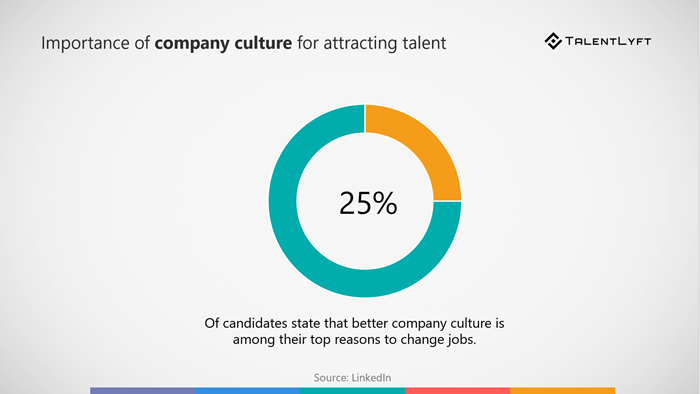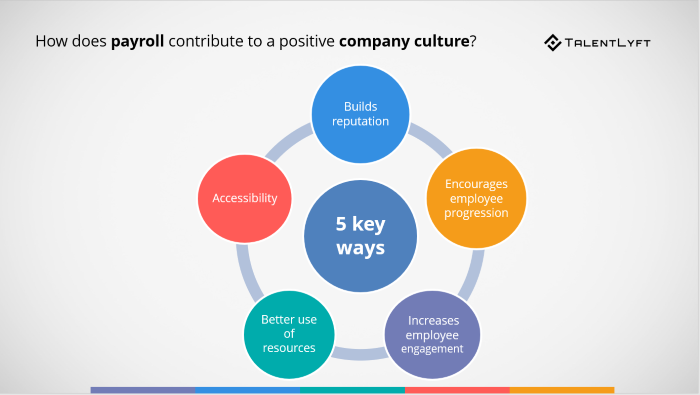
Payroll teams are key contributors to positive company culture. Without a good payroll team on their side, businesses face the threat of a bad reputation, minimal employee engagement and high employee turnover.
Payroll teams are key contributors to positive company culture. Without a good payroll team on their side, businesses face the threat of a bad reputation, minimal employee engagement and high employee turnover.
While business leaders agree that company culture is essential to running a modern business, not everyone knows the role payroll plays.
Payroll impacts many areas of a business in a thousand small ways, affecting cash flow, productivity, and business success. When it comes to company culture, payroll, along with its partner in crime – HR, plays a vital role.
And it's more than just making sure everyone gets paid…
➡️ Download our free eBook: GDPR Compliance in Human Resources!
Company culture is more than painting values on the walls, having a beer fridge, and launching "Meditation Mondays". It's not a leadership style or a hiring policy. Company culture is all the above and more.
It's how a company cultivates business growth by offering each employee a voice while encouraging healthy day-to-day attitudes, behaviors, and work ethics.
Great company culture sets the foundations for real, tangible business growth. It’s based on honest, productive conversations and helps companies to identify issues and collectively form resolutions.
According to a study by Spherion, employees said their top concerns during their job search would be their experience in the hiring process, the number of perks, programs, and benefits a company offers to help workers with work-life balance, and their connection with a company’s culture and values.

Thus, companies should invest in building a great company culture to retain their employees. They should also promote their company culture to attract new employees.
A good payroll team is necessary to cater to these concerns - benefits, perks and correct compensation is a core responsibility of the payroll team.
Correct compensation and a good work-life balance are particularly crucial for those with families, and recurring payroll errors can be a cause for concern for employees.
In fact, a survey from The Workforce Institute at Kronos found that 49% of American workers will start a new job search after experiencing just two payroll errors.
This shows just how much employees value an attentive payroll team – they are far more than the team that hands them their paychecks.
Here are the 5 ways payroll directly contributes to positive company culture:

A company’s reputation is reliant on its stability and security. A trustworthy, reputable, and qualified payroll team prevents fraud, maintains compliance, and submits critical documentation to strict deadlines.
This is vital for building a strong employer brand; negative press or simply negative word of mouth can be harmful. This is not something current employees want to be involved in, and prospective candidates will be put off.
By ensuring payroll processes are managed well and security is taken seriously, there’s less chance for any errors or suspicious activity to occur, meaning a better company reputation is upheld.
Progression is vital for employees looking to stay with a company long-term. They want to progress within the team, building on their current skill set and gaining promotions.
Success is built on employee recognition and a great way to recognize an employee’s achievement is with compensated pay, company benefits, and frequent social and monetary recognition.
Being paid correctly and on time is essential. If employees are consistently paid incorrectly or insufficiently, they will feel undervalued and less inclined to be engaged in their roles.
Late paychecks and missing payments can also lead to them losing faith in their company and questioning if something bigger is happening financially behind the scenes. These are two great motivators for an employee to decide to make a move.
A reliable payroll team that communicates well and consistently pays employees correctly means teams have confidence that they are being reimbursed as expected. It is also beneficial for employees to know that any queries they have will be dealt with swiftly.
Having good faith in a company can mean boosted morale and increased engagement from employees. It should be a given, but if payroll isn’t being done correctly, why should employees go the extra mile?
Managing employees’ pay is a time-consuming task. By having a reliable payroll team on your side, these time-consuming tasks can be delegated, allowing for better use of resources.
With a great selection of HR and payroll software available, companies can benefit from increased time savings, management, and reporting.
Employees value ease of accessibility. By allowing them to easily access current and historical payslips in one place with mobile apps, employees have effortless access to their pay information.
This minimizes the need for employees to go to their payroll team for information and filter through mounds of paperwork when requested.
We live in a digital world, and it’s important to provide digital avenues for employees – providing mobile app accessibility to HR programs leads to better payroll and employee experience.
According to a study by Robert Half, 46% of professionals feel they are underpaid at their jobs. Pay is compensation – employees work to get paid, no matter how much they value their role.
They want recognition for the work they do every day, and their payslip compensates for this. Employees who are compensated for their extra effort or new skills feel valued and respected.
In addition, flexible payroll means your staff is compensated correctly in line with their performance as a whole.
A performance-based pay model means your employees get compensated for their commission and target-based bonuses, meaning employees are satisfied that their pay is 100% accurate.
It is clear payroll teams are key contributors to positive company culture. Without a good payroll team on your side, businesses face the threat of a bad reputation, minimal employee engagement, and high employee turnover. So, the question is, have you invested in your business’s payroll?
Gary Webb is the Marketing and Communications Director at FMP Global, the leading global provider of payroll and HR services.












